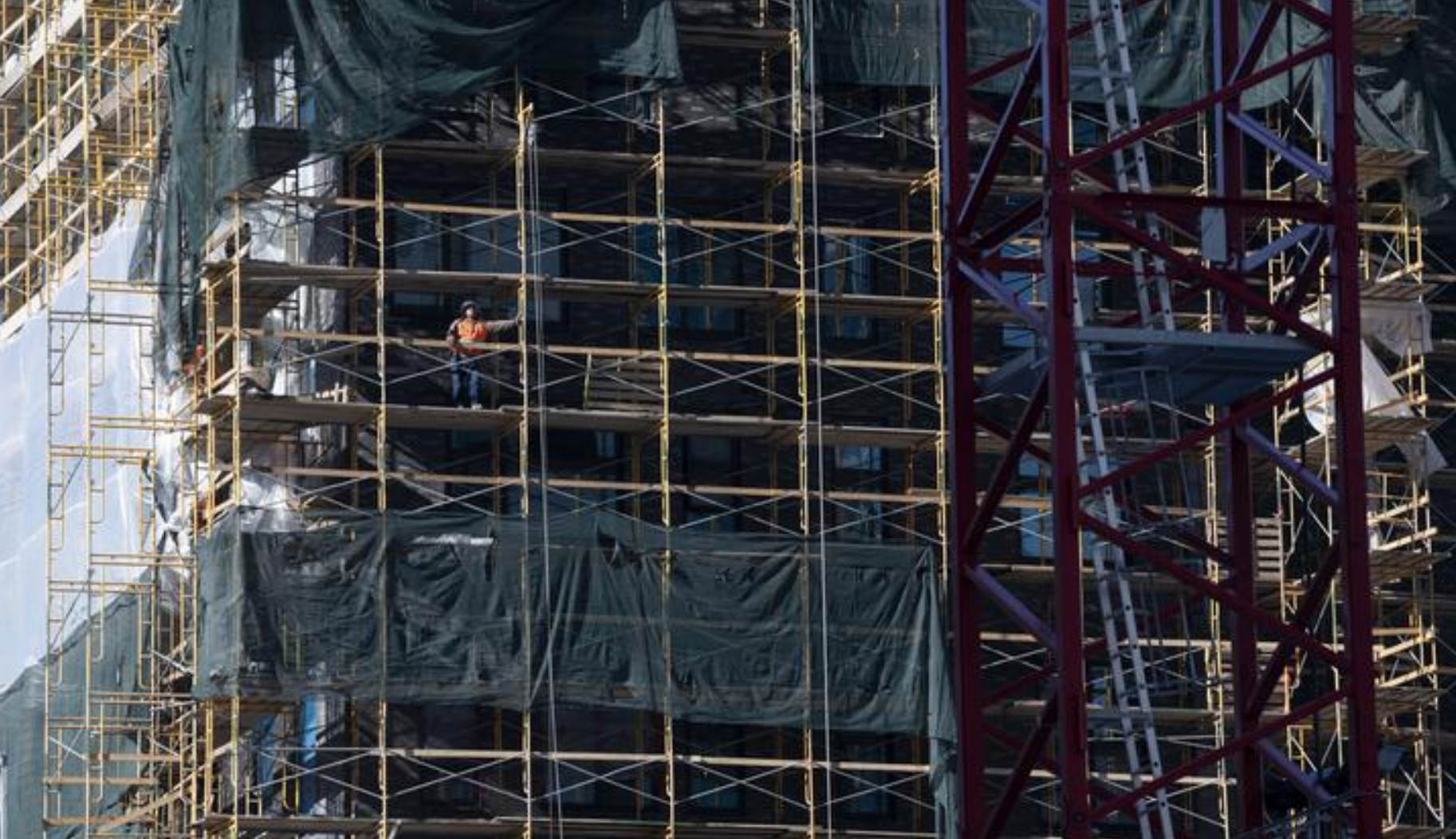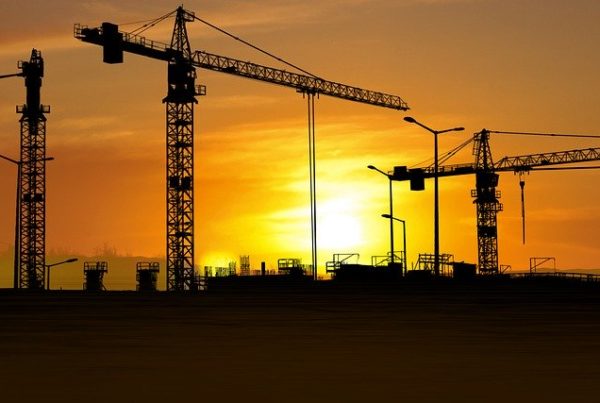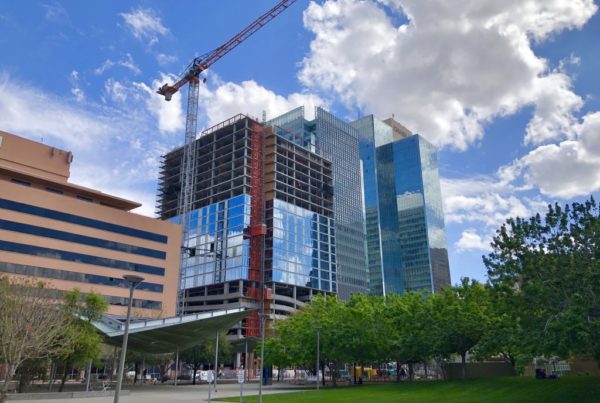Article can be found on Denver Business Journal, here.
Construction in the Denver metro is still largely continuing, despite the coronavirus pandemic.
But threats of delays due to labor and material shortages remain, and industry leaders are closely monitoring to see if the types of executive orders that have halted construction in some other U.S. cities are possible here in Colorado.
To avoid such an outcome, industry representatives in the state are urging government leaders to deem construction an essential service that must continue within the state.
On Sunday, Gov. Jared Polis ordered non-critical businesses to reduce in-person workforces by 50% or more, but the construction sector was given a “critical” designation.
Construction crews are following public health guidelines and taking precautions to keep workers healthy, such as making sure workers are spread out across construction sites, working split crews to reduce the number of workers on the site at any one time and advising employees to avoid sharing tools or water.
Workers are also using video and technology for customer interactions and inspections, which industry leaders agreed are imperative to keeping construction moving forward. The City of Denver is continuing to carry out construction inspection.
Michael Gifford, CEO of the Association of General Contractors of Colorado, an industry trade group, said significant delays in construction could be particularly harmful in a metro such as Denver, where construction has already struggled to keep pace with the influx of new residents and projects designed to accommodate them.
“Long-term, as we come out of this, if there’s an acceleration of building to catch up — assuming there’s a bounce-back — we’d probably see a period where we may even have more of an extreme shortage,” Gifford said.
Gifford said the number of construction workers in Colorado has hovered between 175,000 and 180,000 for the past three years. About 110,000 of those workers are located in the Denver metro. In order to maintain those levels, Gifford said the industry has had to work hard to bring in new people to the industry as older employees retire.
Ted Leighty, CEO of the Colorado Association of Home Builders, said adding 180,000 more workers to the ranks of the unemployed in Colorado would be “catastrophic.”
“If construction were to stop it will have significant, unintended consequences, not only those on the front line but also for our economy,” Leighty said. “Work stoppages in this industry will reverberate through financial markets and unwind a network of contracting and employment issues.”
The good news, Gifford said, is that construction is not considered a public activity, since the work takes place on a private site. So while Colorado Department of Public Health and Environment issued an order Wednesday banning public gatherings of 10 people or more, construction sites have been able to keep moving while taking additional precautions to prevent the spread of the virus.
On March 19, Pennsylvania Gov. Tom Wolf ordered all “non-life-sustaining businesses” to close their physical locations beginning at 8 p.m. that evening. That order extended to construction companies, who can no longer work on residential and nonresidential projects across the state.
In Boston, Mayor Martin J. Walsh announced the suspension of all regular activity on construction sites within city limits beginning March 17 in an effort to slow the spread of coronavirus.
For now, construction for most projects in the Denver metro are continuing, based on Denver Business Journal’s conversations with local companies and feedback that industry group leaders such as Gifford have received from their members. Gifford did say that some individual owners, particularly in the mountains, have asked for a project shutdown to prevent the spread of the coronavirus. A few other sites, he said, have been forced to shut down temporarily when a worker gets sick.
But even in some of the industries that have been hit hardest, such as restaurants and hospitality, some projects are still moving forward.
“We have new restaurants starting the design process and a couple of restaurants under construction that are staying the course,” said Sarah Brown, a principal at architecture firm Semple Brown.
Jonathan Pray, an attorney with Brownstein Hyatt Farber Schreck who specializes in real estate and construction, said he believes it’s only a matter of time before the Denver metro begins to see delays due to labor and material shortages.
“Nobody knows where this is headed or what the scale is, but there’s clearly a concern out there about the availability of trade labor if infection rates become very high or if quarantine or shelter-in-place orders become more restrictive than they currently are,” Pray said.
Pray said parties involved in construction contracts should be looking at force majeure clauses, which are included in most construction contracts and allocate the risk of some unforeseen delay between the contractor and owner. Oftentimes, Pray said, the owner bears that risk.
“We were, until last week, in what most people considered a pretty overheated construction market, particularly in the subcontractor market” Pray said. “There were certainly plenty of projects that had delays due to labor shortages. It’s a little bit of an interesting turn of events because if a party is going to want to assert a claim due to delay, both sides are going to have to parse out what part of the delay took place before the pandemic.”





